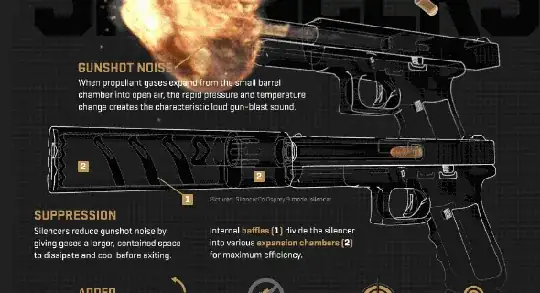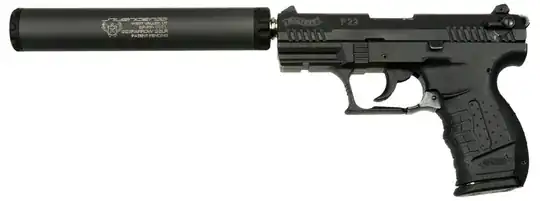I want to know the science behind the working of the silencer of a gun. Does it decreases the speed of the bullet?
1 Answers
When you shoot a gun, the production of pressured and superheated gases from the explosive mixture within the bullet nearest the firing pin causes the bullet to travel down the barrel. It's the large pressure difference between the gas packed barrel and the much lower pressure atmospheric air that produces the noise. The pressure behind the bullet is immense, on the order of 3,000 pounds per square inch (psi), so the POP that the gun makes as it is uncorked is extremely loud.
One way around this noise is to use the same principle as used in car exhausts, that is, makes the gases wind their way through a series of baffles and expansion chambers that slow down the gas, cool it and funnel it to by the time it reaches the top of the barrel, it has a much reduced pressure difference to how it sounds without the silencer. Other benefits of a silencer include reduced recoil, better accuracy, smaller muzzle flash, and less damage to nearby ears. When the bullet finally exits through the hole in the silencer, the pressure being uncorked is much, much lower -- perhaps 60 psi. Therefore, the sound of the gun firing is much softer.
Most modern silencers are made with baffles that do not touch the bullet, so there is no slowing of the bullet. Increases in velocity of 1 to 5 fps depending on the caliber when using a silencer, have been observed.
A high powered supersonic speed bullet will not be silenced by the above method because, like a supersonic aircraft, it creates its own sonic boom. The silencer can remove the "uncorking" sound, but not the sound of the bullet's Mach cone.
A silencer showing the enlarged barrel containing chambers (and baffles hidden inside).
- 111

